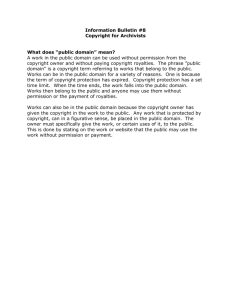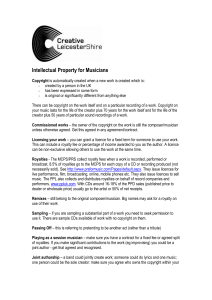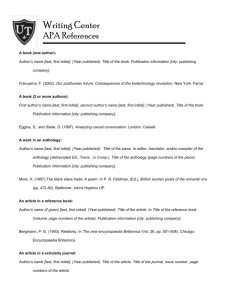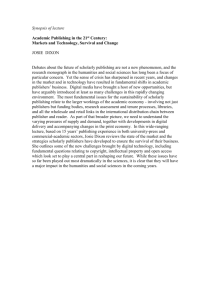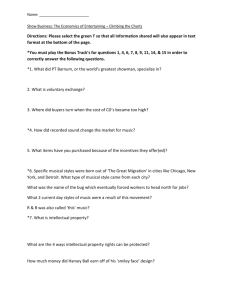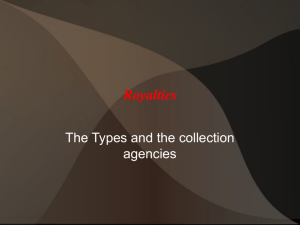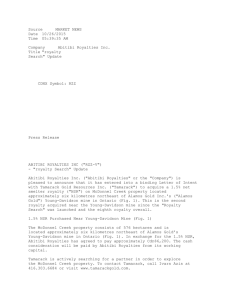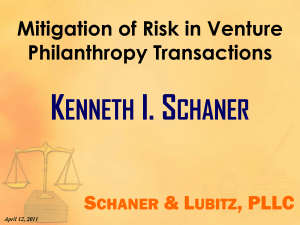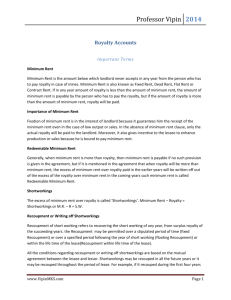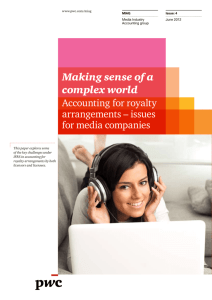Mech_Royalties_Money_Flow
advertisement
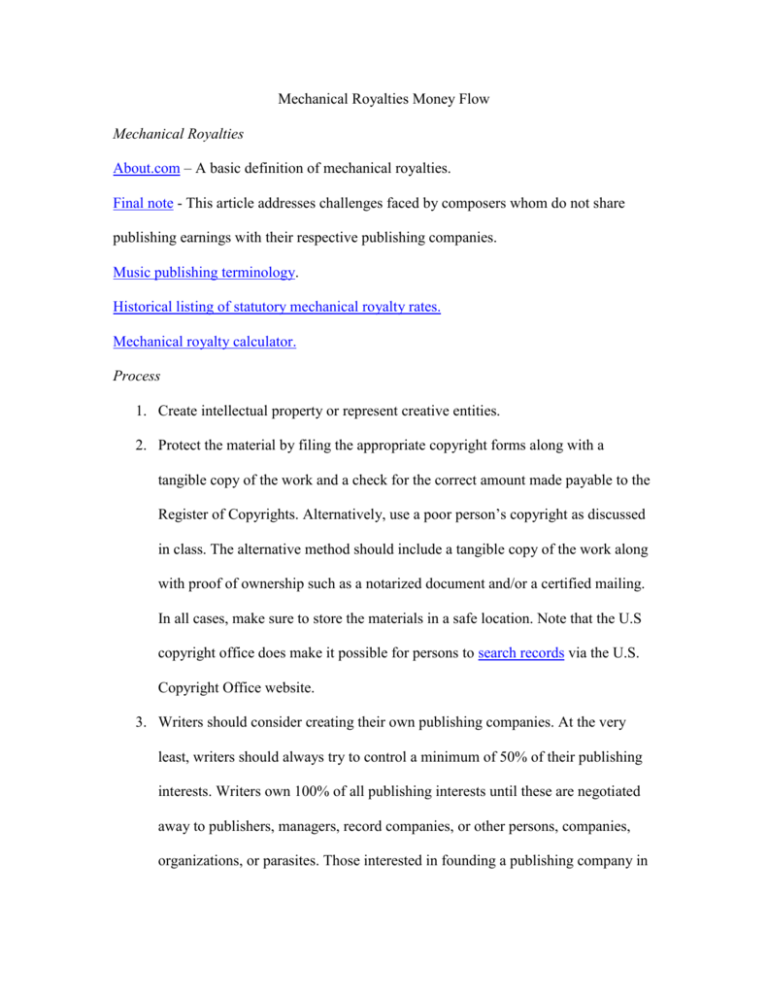
Mechanical Royalties Money Flow Mechanical Royalties About.com – A basic definition of mechanical royalties. Final note - This article addresses challenges faced by composers whom do not share publishing earnings with their respective publishing companies. Music publishing terminology. Historical listing of statutory mechanical royalty rates. Mechanical royalty calculator. Process 1. Create intellectual property or represent creative entities. 2. Protect the material by filing the appropriate copyright forms along with a tangible copy of the work and a check for the correct amount made payable to the Register of Copyrights. Alternatively, use a poor person’s copyright as discussed in class. The alternative method should include a tangible copy of the work along with proof of ownership such as a notarized document and/or a certified mailing. In all cases, make sure to store the materials in a safe location. Note that the U.S copyright office does make it possible for persons to search records via the U.S. Copyright Office website. 3. Writers should consider creating their own publishing companies. At the very least, writers should always try to control a minimum of 50% of their publishing interests. Writers own 100% of all publishing interests until these are negotiated away to publishers, managers, record companies, or other persons, companies, organizations, or parasites. Those interested in founding a publishing company in 2 the state of Florida can start by visiting Florida’s Department of Corporations at www.sunbiz.org. 4. Publishers may want to affiliate themselves with the Harry Fox Agency, the world’s largest music licensing organization, in order to have Harry Fox collect mechanical royalties for them. Publishers can also collect these royalties on their own. 5. In order to collect airplay, broadcasts, and live performance royalties fro their copyrighted works, writers and publishers should affiliate themselves with a performing rights organization of their own choosing. The three American performing rights organizations listed in alphabetical order are: ASCAP, BMI, and SESAC. 6. Artists, studio musicians, and sound recording copyright owners should register their materials with Sound Exchange in order to receive digital broadcast royalties made possible with President William Jefferson Clinton’s signing of the Digital Millennium Copyright Act of 1998. 7. All industry professionals should monitor changing trends and laws in order to best protect and profit from any and all intellectual property with which they are associated. The Team 1. Management a. Personal managers (Day-to-day and career oversight) b. Business managers (Financial managers) 2. Booking agents 3 3. Partners and bands 4. Producers 5. Legal representation 6. Publishing 7. Record companies and distributors 8. Unions and guilds a. The American Federation of Musicians b. The Screen Actors Guild c. The American Federation of Television and Radio Artists d. Actor’s Equity 9. Merchandising 10. Promotion and marketing a. Recordings b. Videos c. Websites d. Mailing lists e. Live performance f. Bio, resume, press releases g. Photos Weblinks www.ascap.com www.bmi.com www.copyright.gov 4 www.harryfox.com www.kochent.com www.musicbizadvice.com www.professorcalle.com www.sesac.com www.taxi.com www.themusicbiz.com 5 References About, Inc. (2008). Mechanical royalties [Electronic version]. Retrieved January 24, 2008, from: http://musicians.about.com/od/glossary/g/mechanicalroyal.htm Harry Fox Agency, Inc. (2008). Mechanical royalty calculator. Retrieved January 24, 2008, from: http://www.harryfox.com/public/royaltyCalculation.jsp Howard, G. (2004). Performances and booking agents: The live life [Electronic version]. Retrieved January 24, 2008, from: http://www.musicbizadvice.com/music_business_lessons_performances_and_boo king_agents_the_live_life.htm MusicBizAdvice.com. (2003). Q & A: The Difference Between Managers, Personal Managers, Tour Managers, and Business Managers, and What They Do [Electronic version]. Retrieved January 24, 2008, from: http://www.musicbizadvice.com/qa%20What's%20the%20difference%20between %20a%20manager%20a%20personal%20manager%20a%20tour%20manager%2 0and%20a%20business%20manager.htm Northam, M. (2006, September 8). The beginning of the end of performance royalties for film & TV music? [Electronic version]. Retrieved January 24, 2008, from: http://finalnote.blogspot.com/2006/09/beginning-of-end-of-performance.html U.S. Copyright Office. (2006, May 30). Copyright royalty rates: Section 115, the mechanical license [Electronic version]. Retrieved January 24, 2008, from: http://www.copyright.gov/carp/m200a.html Velletri, G. (2008, January 21). Music publishing terminology [Electronic version]. Retrieved January 24, 2008, from: http://www.knowthemusicbiz.com/index.php/BIZ-BLOG/BIZ-BLOG/MusicPublishing-Terminology-by-Garry-Velletri.html
